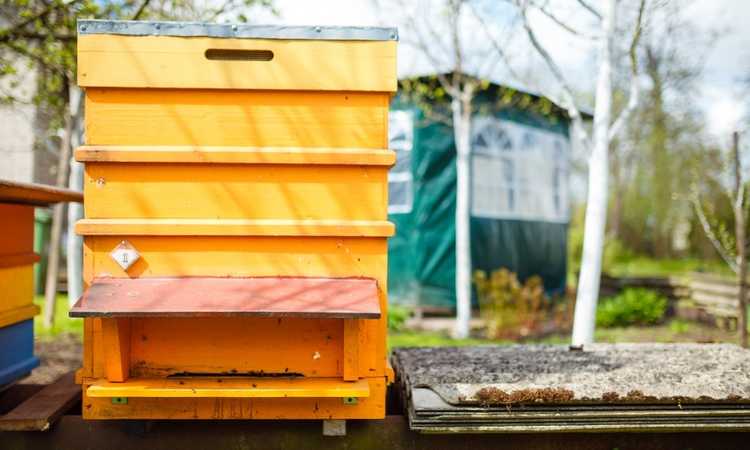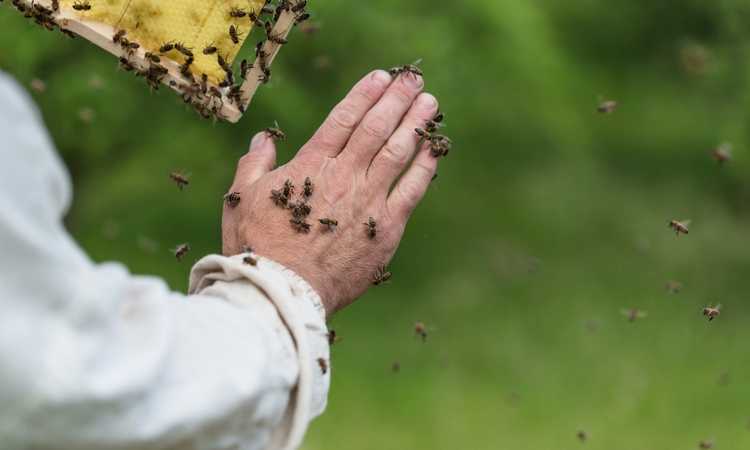Not researching enough before starting out
One of the biggest mistakes people make when they start their beekeeping hobby or business is not doing enough research. Too often, new beekeepers rely on their gut instinct or the advice of friends and family, without taking the time to learn about the important (and unique!) requirements of beekeeping.
This can lead to costly mistakes, missed opportunities, and in some cases, complete failure. Before starting out on your beekeeping adventure, it’s important to take the time to do your homework. Here are a few costly beekeeping mistakes we’ve made, and how to avoid them at all costs!

Buying an inferior quality beehive
As any beekeeper knows, a beehive is one of the most important tools of the trade. In fact, it is a beekeeping essential! A good beehive will provide a safe and comfortable home for your bees, while an inferior quality beehive can put your bees at risk.
When shopping for a beehive, it’s important to look for one that is made from high-quality materials. The body of the hive should be sturdy and well-insulated, and the frames should be made from strong wood or metal.
In addition, the hive should have plenty of ventilation to keep the bees cool in summer and dry in winter. By taking the time to find a high-quality beehive, you can help ensure the health and safety of your bees.
Failing to provide a suitable environment for the bees
Bees are one of the most important pollinators of our food crops, so it is essential to provide them with a suitable environment in which to thrive. Unfortunately, human activity has resulted in a decline in the number of bees, and this is having a devastating effect on our ability to produce food.
One of the biggest problems facing bees is the loss of their natural habitats. As humans have cleared land for housing and agriculture, we have destroyed the flowers and other plants that bees rely on for food.
In addition, the use of pesticides has killed off many bees, and this is having a ripple effect on the food chain. As bees disappear, we are failing to provide a suitable environment for them, and this could have catastrophic consequences for our food supply.

Not being prepared for the cost of beekeeping
Beekeeping is a rewarding hobby, but it requires a significant investment of time and money. While the initial cost of purchasing bees and supplies can be relatively inexpensive, the ongoing costs can quickly add up.
Be prepared to spend money on beekeeping equipment and supplies, as well as replacement bees if your colony should happen to die.
In addition, you’ll need to factor in the cost of your time, as beekeeping is a time-consuming hobby. If you’re not prepared to make this commitment, then beekeeping may not be the right hobby for you.
Ignoring the importance of regular hive inspections
Being a beekeeper isn’t just about putting some hives out in your backyard and coming back in the fall to harvest the honey.
It’s important to regularly inspect your hives to make sure that the bees are healthy and that the hive is free of pests. Ignoring this responsibility can have serious consequences.
Without regular inspections, it’s difficult to spot problems early on and take corrective action. This can lead to a decline in the bee population, as well as lower honey yields.
In extreme cases, an untreated hive might even collapse. Regular hive inspections may require some effort, but they are essential for keeping bees healthy and productive.
Allowing pests and diseases to take hold in the hive
As any beekeeper knows, a healthy hive is essential to the production of honey. However, keeping a hive healthy can be a challenge, as pests and diseases can quickly take hold if the bees are not properly cared for.
One of the most common problems is Varroa mite infestation, which can weaken and even kill bees. If left unchecked, Varroa mites can quickly spread through the hive, causing widespread damage.
Another serious threat is American foulbrood, a bacterial disease that can decimate a population of bees. Beekeepers must be vigilant in preventing these and other problems from taking hold in their hives, as the consequences can be devastating.
Starting out in beekeeping can be a daunting task, especially if you don’t have enough knowledge about the process.
However, by doing your research and preparing for the cost of beekeeping, you can avoid some of the common mistakes that newbies make. By ensuring that your bees have a suitable environment and regularly inspecting their hive, you can keep them healthy and productive.

Hi – I’m Erika, the head writer and expert beekeeper here at Just Beekeeping! I am a backyard beekeeper and proud member of the American Beekeeping Federation (ABF) and the Central Indiana Beekeepers Association. In addition, I am an educator with advanced degrees from UC-Berkeley and the University of Southern California (USC). I use my expertise to help others learn about beekeeping, and I am an advocate for all subjects bee related!